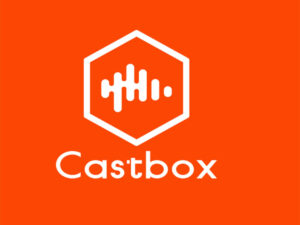So you are now an, Entrepreneur, and working for yourself! You are the Boss, the President and CEO! What do you do next? The first decision to be made is figuring out what Business structure works best for you.
Entrepreneurship – What makes one throw in the employment towel? Why do, Entrepreneurs, give up the guaranteed paycheck every two weeks? Work 14 hour days, and sometimes not even pay themselves. Why? I think it is because we are passionate about what we do. When you are passionate about what you do, you would it for free!
“Your work is going to fill a large part of your life, and the only way to be truly satisfied is to do what you believe is great work. And the only way to do great work is to love what you do.” –Steve Jobs, Co-Founder, Chairman and CEO, Apple
Is, Incorporation, or, Sole Proprietorship, the right structure? Are you “Minding your own business”? This is a term made popular by Robert Kawasaki in the book “Rich Dad, Poor Dad” and refers to the concept having regular employment while operating your own business on the side. Robert suggests that you have this dual employment status until your business on the side generates revenues equals your current pay check. This relieves the stress of supporting yourself and your family with revenues from a new business. Your Accountant can recommend the best structure for your company or you can refer to my self help start up guide “Minding your own business” available for download at www.shop.myhelps.us. Below is an excerpt from “Minding your own Business”
What New, Entrepreneurs, Need To Know:
As a new, entrepreneur, you need to know your federal Tax responsibilities. In addition to knowing about federal taxes, you need to make some basic business decisions.
What is the Form or Structure of your new Business?
The most common forms of business are the, sole proprietors, Corporations, Partnerships, LLC, and S Corporations. When beginning a business, you must decide which form of business to use. Legal and tax considerations enter into this decision.
Sole Proprietorship: A, sole proprietorship, is an unincorporated, small business, that is owned by one individual. It is the simplest form of business organization to start and maintain. The business has no existence apart from you, the owner, entrepreneur, Its liabilities are your personal liabilities. You undertake the risks of the business for all assets owned, whether or not used in the business. You include the income and expenses of the business on your personal tax return.
Corporations: In forming a corporation the, entrepreneur, and prospective shareholders exchange money, property, or both, for the corporation’s capital stock. A corporation generally takes the same deductions as a, sole proprietorship, to figure its taxable income. A corporation can also take special deductions. For federal income tax purposes, a C corporation is recognized as a separate taxpaying entity. A corporation conducts business, realizes net income or loss, pays taxes and distributes profits to shareholders. The profit of a corporation is taxed to the corporation when earned.
Limited liability Company: A limited liability company ,LLC, is an entity formed under state law by filing articles of organization as an, LLC. The members of an, LLC, and the, entrepreneur, are not personally liable for its debts. An, LLC, may be classified for federal income tax purposes as either a partnership, a corporation, or an entity disregarded as an entity separate from its owner by applying the rules in regulations.
S corporations: An S corporation is a, small business, with an eligible domestic corporation can avoid double taxation (once to the corporation and again to the shareholders) by electing to be treated as an S corporation. Generally, an S corporation is exempt from federal income tax other than tax on certain capital gains and passive income. On their tax returns, the S corporation’s shareholders include their share of the corporation’s separately stated items of income, deduction, loss, and credit, and their share of non separately stated income or loss.
Employer Identification Number, EIN, is used to identify the tax accounts of employers, certain, sole proprietors, corporations, partnerships, estates, trusts, and other entities.

Some Other Considerations of your new, Entrepreneur, are:
- Who are your customers?
- How do you market to this select base?
- What are my skills? What skills do I need to complete my team?
- What is my vision? What is my plan to get there?
With the current state of the, economy, having a well-defined, target market, is more important than ever. No one can afford to target everyone. Small businesses, can effectively compete with large companies by targeting a niche market. Many businesses say they target “anyone interested in my services.” Some may say they target, entrepreneurs, homeowners, or stay-at-home moms. All of these targets are too general. Targeting a specific market does not mean that you have to exclude people that do not fit your criteria from buying from you. Rather, target marketing, allows you to focus your marketing dollars towards a specific, target market, and brand message on a specific, target market, that is more likely to buy from you than other markets. This is a much more affordable, efficient, and effective way to reach potential clients and generate business. For example, if you are a Florist, your customers could be anyone with a birthday or anniversary but you could decide to target the wedding market and put your marketing dollars towards that, target market. With a clearly defined, target market, it is much easier to determine where and how to market your company.
Here are some tips to help the new, entrepreneur, define the, target market:
- As an, entrepreneur, you must know your current customer base
Who are your current customers, and why do they buy from you? Look for common characteristics and interests. Which ones bring in the most business? It is very likely that other people like them could also benefit from your product/service.
- An, entrepreneur, must check out the competition
Who are your competitors targeting? Who are their current customers? Understand why they are targeting this demographic and then try to become innovative and offer something different. You may also find a niche market that they are overlooking.
- Choose Specific Demographics for your, target market.
Figure out not only who has a need for your product or service, but also who is most likely to buy it. Think about the following factors:
- Age
- Location
- Gender
- Income level
- Education level
- Marital or family status
- Occupation
- Ethnic background
- The, entrepreneur, must consider the Psychographics of Your Target Customer
Psychographics for, Target Marketing:
- Personality
- Attitudes
- Values
- Interests/hobbies
- Lifestyles
- Behavior
- Determine how your product or service will fit into your, target market, lifestyle.
- How and when will they use your product or service?
- What features are most appealing to them?
- What media do they turn to for information?
- Do they read the trade journals, search online, or attend particular events to choose suppliers?

As an, entrepreneur, you must understand How Your Customers Think. Once you’ve decided on a, target market, be sure to consider these questions:
- Will my target really benefit from my product/service?
- Will they see a need for it?
- Do I understand what drives my, target market, to make decisions?
- Can they afford my product/service?
- Can I reach them with my message?
- Are they easily accessible?
You may be asking, “How do I find out all this information?”
- Try searching online for research others have done on your, target market.
- Search for magazine articles and blogs that talk about your, target market.
- Search for blogs and forums where people in your, target market, communicate their opinions.
- Look for survey results, or consider conducting a survey of your own.
- Ask your current customers for feedback.
- What are my skills? What skills do I need to complete my team?
The In’s and Out’s of Entrepreneurship
In the early days of running your, entrepreneurship, as a new, entrepreneur, it’s natural to try to do as much as possible yourself. It’s the most cost-effective, comfortable, sensible way to do things in the beginning. But as your enterprise grows, you’ll find yourself stretched thinner and thinner. Eventually, you’ll find you just can’t continue to oversee operations and sales and accounting and fulfillment and marketing–and hope to continue to grow your, small business. When you reach this point, it’s time to think about bringing other high-level managers or team members on board to help you out.
You need to build a senior team that’s able to manage all the critical areas of your business to take it to the next level. Building your team demands matching jobs to people’s strengths. That means giving people responsibilities according to skill level, not based on how close a friend they are, or how closely related they are to you, or whether you just like their sunny personality. Become Conscious of your strengths and the areas you lack the necessary skills. Eg. Are you creative? Can you design your marketing or branding materials? Are you skilled in sales? If not you need a sales team. When it comes time to hiring an executive team, you’ll need to find people to fill the following roles:
Leadership roles in your Company
Chief Executive Officer (CEO). The fact of the matter is, the CEO is the boss of everyone and is responsible for everything. They determine the company’s strategy. They hire and build the senior team. They make the final call on how resources get divvied up, and they’re the one whose face appears on the press releases!. The CEO’s skills must include strategic thinking, the ability to rise above the daily details and decide where the industry and business are headed. They must then be able to decide the company’s best route for navigating the future market conditions. They have to be able to make good bets.
Some of the best are Steve Job; Apple; Bill Gates, Microsoft; Jack Welsh, GE.
https://www.businessinsider.com/best-ceos-past-30-years-2011-7?op=1
The CEO’s key skill, however, is in hiring and firing. The right management team can cover a CEO’s shortcomings. A CEO may be able to set strategy, predict the future and control the budget, but if they don’t hire the right team, they have to master it all themselves.
Chief Operating Officer (COO). A COO handles a company’s complex operational details. Think about UPS moving three billion packages in the two weeks before Christmas: or think of a Florist delivering hundreds of flowers on Valentine day. The day after is too late! The company’s COO insures the business can deliver day after day. He figures out just what needs to be measured so he can tell if things are going well. Then his team creates the systems to track the measurements and takes action when the company isn’t delivering. As an Entrepreneur, you are probably the President, CEO and COO. If you just take orders and do no planning and measuring then you will remain an Entrepreneur.
Your vision should be to grow up and become an Enterprise!
President. A president oversees staff functions–human resources, finance and strategy–while the COO oversees daily operations. the president can also be a synonym for COO, especially in smaller companies.
Chief Financial Officer (CFO). Plain and simple, your CFO handles the money. They create budgets and financing strategies. They figure out if it’s better for your business to lease or buy. Then they build the control systems that monitor your company’s financial health. The CFO is the “bad guy” who won’t let you buy that really cool videoconferencing equipment and makes you pay down a commercial loan instead. While you mope about it in your office, the CFO will be busy figuring out which customers, business lines and products are profitable, so next year you can afford the really cool videoconferencing equipment.
Chief Marketing Officer (CMO). Recently, companies have been bringing in a marketing expert at the C-level rather than as just a vice president. The reason is simple: Many current business battles are battles of marketing, so corporate strategy often hinges on a marketing strategy. The CMO owns the marketing strategy–and that often includes the sales strategy–and oversees its implementation. The CMO will know (or learn) your industry inside out and helps you position your product, differentiate it from your competitors’ products, enlist distributors, and make sure customers learn to crave your product. Think of Apple and the new IPhone 6!
All business Live or Die with marketing. I heard a story once about a new magazine start-up Company that hired a sales person to go door to door and sell subscriptions to the magazine as their marketing plan. The magazine was a very good magazine but the business failed because the sales person (their only form of marketing) did not sell a single subscription in 6 months! I am marketing to you the reader of this Blog right now! Marketing can take many forms; but it is the blood of a business. Without it, your business dies.
Chief Technology Officer (CTO). A CTO should keep up with technology trends, integrate those trends into the company’s strategy, and make sure the company keeps current when it’s necessary. You need a CTO if technology impacts your business or industry strategically.
Entrepreneurship is about going for the things that are much bigger than what you could do alone. Your job isn’t to reach the goal; it’s to build a team that will reach the goal. If you really want to reach your goals, you’ll need to bring on others to help, and creating a good executive team means knowing what you need them to do, finding good candidates, and giving them what they need to do their jobs. If you choose well, they’ll be successful and make you successful as well.
Qualities of an Entrepreneur Leader
Vision – The Universal Energy behind your dreams
“Some believe there is nothing one man or one woman can do against the enormous array of the world’s ills — against misery, against ignorance, or injustice and violence. Yet many of the world’s great movements, of thought and action, have flowed from the work of a single man. A young monk began the Protestant reformation, a young general extended an empire from Macedonia to the borders of the earth, and a young woman reclaimed the territory of France. It was a young Italian explorer who discovered the New World, and 32 year old Thomas Jefferson who proclaimed that all men are created equal. ‘Give me a place to stand,’ said Archimedes, ‘and I will move the world.’ These men moved the world, and so can we all.”— Robert F. Kennedy
Pat Riley’s vision was to win a Championship for Miami. So he put together his team with his star players; Lebron James, Dwayne Wade and Chris Bosh. Then he needed supporting players, each with supporting skills. He also needed the right coaches! Vision, The right team and execution won him not One but Two Championships!!
Additional Resources
https://www.squadhelp.com/business-name-generator
https://myhelps.us/rich-wealthy-9010-rule/








